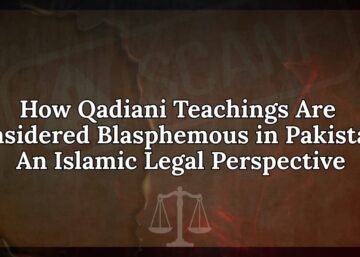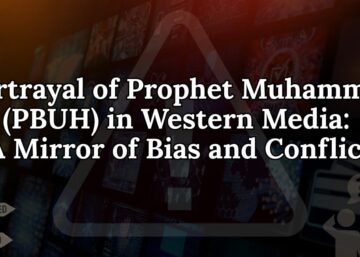The claim of Mirza Ghulam Ahmad Qadiani to be a prophet has been a matter of grave concern for Muslims worldwide. His writings, spanning numerous books and pamphlets, form the cornerstone of his controversial movement. However, a closer examination of these texts reveals glaring inconsistencies, contradictions, and outright fabrications that undermine his claims and credibility. This article explores some of the most significant contradictions in his works, demonstrating that his assertions are baseless and inconsistent with Islamic teachings.
- Contradictions in His Prophetic Claims
Initial Denial of Prophethood
In the early stages of his mission, Mirza Ghulam Ahmad categorically denied claiming prophethood. In his book Barahin-e-Ahmadiyya (Volume 5), he wrote:
“It is not my claim to be a prophet or a messenger in the literal sense of the word. I am only a servant of the Prophet Muhammad (peace be upon him) and his follower.”
Subsequent Declaration as a Prophet
Later, he explicitly claimed to be a prophet. In Haqiqat-ul-Wahi, he stated:
“I am the prophet promised by the earlier prophets, and my prophethood is divinely ordained.”
This transition from denying prophethood to openly declaring it exposes a fundamental inconsistency. If he was truly divinely appointed, why would he initially deny his mission only to contradict himself later?
- Fabricated Revelations
Mirza Ghulam Ahmad frequently claimed that his writings were inspired by divine revelation. However, his alleged revelations often contained absurdities, grammatical errors, and self-contradictions, raising doubts about their authenticity.
Grammatical Errors in Revelations
In Tadhkirah, a compilation of his supposed revelations, he claimed Allah said to him:
“Ana ma’al-aflaheen” (I am with the successful).
This phrase is grammatically incorrect in Arabic, as it should be “Ana ma’al-mufliheen.” A true divine revelation would not contain such linguistic errors, especially when Allah describes the Quran as a book of unparalleled linguistic perfection.
Contradictory Revelations
In one instance, he claimed that Allah revealed to him:
“I will grant you a long life.”
(Tadhkirah)
Mirza Ghulam Ahmad died at the age of 65, contradicting his earlier “revelation” of a long life.
- Failed Prophecies
The failure of Mirza Ghulam Ahmad’s prophecies is perhaps the most damning evidence against his claims. Islamic tradition holds that a true prophet’s predictions are never false, as they are divinely inspired.
Prophecy of Atham’s Death
Mirza Ghulam Ahmad predicted the death of his opponent, Abdul Hakeem Atham, within 15 months in 1893. However, Atham survived this period, forcing Mirza to revise his prophecy.
Prophecy of Muhammadi Begum
One of his most controversial prophecies involved a widow named Muhammadi Begum. He claimed that she would marry him, and if she did not, her current husband would die soon after the prophecy. Neither part of this prediction came true, and Muhammadi Begum remained married to her husband, who lived a long life.
These failed prophecies directly contradict the Quranic principle that a prophet’s words must always be fulfilled:
“And if he [the Prophet] had forged any sayings in Our name, We would certainly have seized him by his right hand.”
(Surah Al-Haqqah: 44-45)
- Self-Contradictions in Theology
Status of Jesus (Peace Be Upon Him)
Mirza Ghulam Ahmad initially affirmed the Islamic belief that Jesus (peace be upon him) was a prophet of Allah who ascended to heaven. However, he later claimed that Jesus died a natural death and that he himself was the second coming of Jesus.
This theological shift contradicts centuries of established Islamic doctrine, which holds that Jesus was raised to the heavens and will return before the Day of Judgment.
- Misinterpretation of Quranic Verses
Mirza Ghulam Ahmad often misinterpreted Quranic verses to support his claims. For instance, he cited the verse:
“And there is no messenger except that he speaks the language of his people.”
(Surah Ibrahim: 4)
He argued that this verse justified his claim to prophethood because he addressed the Indian subcontinent in Urdu. However, this verse refers to Allah’s practice of sending messengers to specific nations in their native languages and does not imply the continuation of prophethood.
- Questionable Character and Actions
Use of Abusive Language
Mirza Ghulam Ahmad often resorted to abusive and derogatory language against his opponents. In Anjam-e-Atham, he called his critics:
“Children of prostitutes and filth.”
Such behavior is unbecoming of a prophet, as the Quran describes the Prophet Muhammad (peace be upon him) as a paragon of exemplary character:
“Indeed, you are of a great moral character.”
(Surah Al-Qalam: 4)
Monetary Exploitation
Mirza Ghulam Ahmad urged his followers to make financial sacrifices for his movement. However, records show that he and his family lived a lavish lifestyle, raising questions about the sincerity of his claims.
- Scholarly Refutations
Prominent Islamic scholars have consistently refuted Mirza Ghulam Ahmad’s claims. Scholars like Maulana Anwar Shah Kashmiri and Maulana Muhammad Ilyas Kandhlawi analyzed his writings and identified numerous contradictions, linguistic errors, and theological deviations. They concluded that his claims were baseless and posed a threat to the unity of the Muslim Ummah.
Shah Waliullah’s Perspective
Although Shah Waliullah preceded Mirza Ghulam Ahmad, his writings anticipated the emergence of false claimants to prophethood. In Hujjatullah al-Baligha, he emphasized:
“The finality of prophethood is a divine decree. Anyone who claims otherwise is a liar.”
Conclusion
The writings of Mirza Ghulam Ahmad Qadiani are riddled with contradictions, failed prophecies, and theological inconsistencies that expose the falsehood of his claims. His shifting positions on key issues, fabricated revelations, and morally questionable actions further undermine his credibility.
The Quran, authentic Hadith, and the consensus of Islamic scholars unequivocally affirm that Prophet Muhammad (peace be upon him) is the final messenger of Allah. Mirza Ghulam Ahmad claims not only contradict this foundational doctrine but also serve as a warning for Muslims to remain vigilant against false prophets. May Allah guide the Ummah to the truth and protect it from deviation.
“And hold firmly to the rope of Allah all together and do not become divided.”
(Surah Aal-e-Imran: 103)



